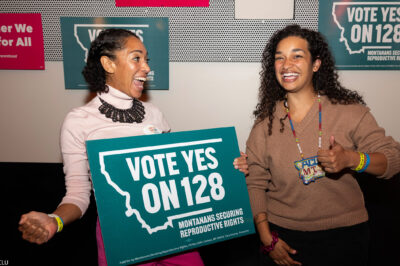Each year, thousands of young people come to the United States without their families; they are fleeing war, violence, and abuse, including sexual abuse. Some have been trafficked for labor or prostitution, and some have been sexually assaulted during their journey here. Once they make it to our shores, they need our compassion and care. It is our government's legal and moral obligation to care for them by providing shelter, food, and medical treatment. But when it comes to reproductive health services, such as abortion and contraceptives, our government is putting up roadblocks rather than helping these teens.
Yesterday, we asked a court to step in. We waited nearly three months for the Administration for Children and Families (ACF) to respond to our request for information about U.S. policy related to providing time-sensitive reproductive health care to undocumented and refugee teens. We could wait no longer. We sued under the Freedom of Information Act and are asking the judge to order the federal government to provide us with this crucial information.
Even absent a response from ACF, we already know enough to make us deeply concerned. This past summer, the media reported that four employees of Catholic Charities in Virginia, one of the government subcontractors that receive taxpayer dollars to care for these young people, were fired after helping a teen obtain an abortion and contraception. After the incident, we learned that ACF issued a policy that limited access to abortion. The incident also prompted Catholic Charities — which cares for these teens around the country — to reiterate their policy that prohibits their employees from providing or referring for abortion and contraception.
In practice, this means that these teens will not have access to reproductive health care. By virtue of who they are and where they find themselves, these teens are wholly dependent upon the federal government and its contractors: they don't speak English; they have no other means of support — financial or otherwise; and their mobility may be severely restricted by the government. Without our government's and its contractors' assistance, these teens must forego vital reproductive health care. Effectively prohibiting access to such care may further traumatize these vulnerable teens, and it also violates their legal rights.
Our government must ensure that these teens are being provided access to reproductive health care and must ensure that its contractors do the same. We hope the case moves quickly so we can assess the extent of the violations and determine what further steps are needed to guarantee that unaccompanied refugee and undocumented teens can get the services they need.




